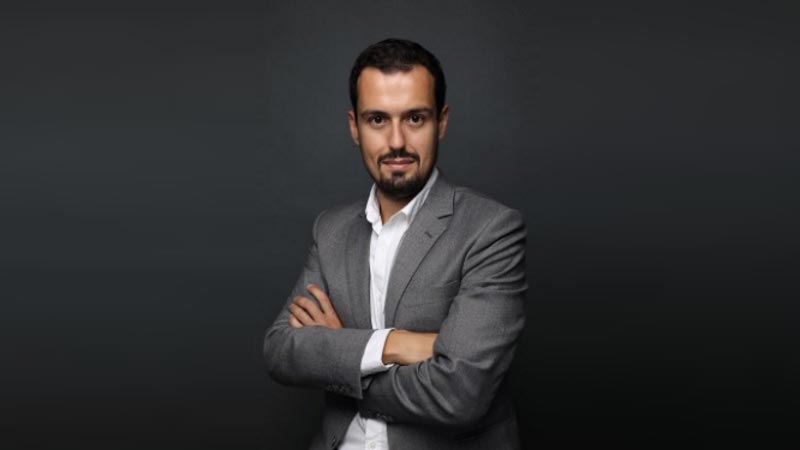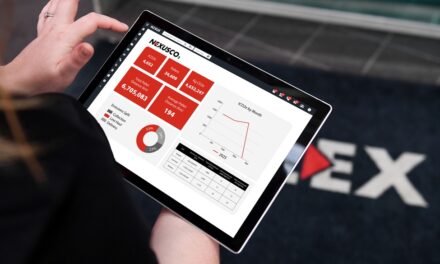
Interview with Ramon Abalo, APG eCommerce

Ahead of the World Mail & Express Asia (WMX Asia) Conference in Hong Kong, we caught up with Ramon Abalo, General Manager Asia-Pacific at APG eCommerce Solutions. Ramon will be speaking at WMX Asia 2019 and offers his thoughts on the conference and the future of the industry.
P&P – Tell us a little bit about yourself and your company.
RA – I’m passionate about Asia and its culture and have been living in Shanghai and Hong Kong for several years. I’ve worked within the international logistics industry for over 10 years in companies such as Inditex, where I built up a wealth of experience in supply chain management and cross-border logistics.
After that period, I set up my own consultancy firm to advise eCommerce companies within Europe and Asia, before joining APG (Australia Post Global) in 2017.
I’m currently based in Hong Kong from where I manage the company activity for Asia-Pacific.
I also write about cross-border eCommerce logistics, new legislations and industry trends (I’ve released my first book this year: “Elogistics – Logistics for Ecommerce”, and also write a blog: ramonabalo.com/blog).
APG eCommerce Solutions (Australia Post Global eCommerce Solutions) is one of the leading suppliers of cross-border eCommerce delivery solutions. With an established presence in key global trade lanes, including Asia, Europe and the USA, APG provides end-to-end logistics solutions to a portfolio of iconic global eCommerce merchants.
P&P – What will you be speaking about at WMX Asia this year?
RA – I’ll introduce the importance of the Chinese import of eCommerce, explain why China is currently the bigger importer of eCommerce goods worldwide and how the Chinese Government is supporting it with legislative changes while promoting initiatives such as Belt and Road that are opening opportunities for the European sellers.
The presentation will develop further the types of eCommerce clearance available after the last legislation changes in early 2019 and the delivery options.
P&P – What do you hope our delegates will take away from your presentation?
RA – The massive opportunity of the Chinese inbound business as well as the easiness that the Chinese government and President Xi has put on the eCommerce import of goods, with projects like CIIE, that rolled out last November. Also, which options are currently on the market to support their customers’ needs.
P&P – What do you feel are the biggest challenges facing your business today?
RA – Crossborder has always been a major challenge for eCommerce players, but today security, sustainability (eco and cost), speed of legislation changes and how the business is ahead of it.
P&P – How can we advance the post and parcel industry?
RA – The most important issue will be complying with local legislation. Changes like the GST in AU and NZ this year, the European regulation in 2021 and new requirements from the US will mark the new era for the post and parcel industry.
With more requirements and liabilities for the service providers, the key will be the accurate exchange of information.
P&P – What is the biggest challenge in the post and parcel industry at the moment?
RA – Sustainability. We’re seeing companies with economic difficulties and changes in strategies in the past few years, a big trend of consolidation of companies in Europe and America mainly.
The costs in this industry are high yet the volumes are increasing exponentially, which requires companies to do huge investments while keeping the cost under control to be able to offer competitive prices.
What are the most critical changes that we must make to face the future effectively?
RA – I personally identify 3 major points on which the industry must focus: security, sustainability and legislation. On the last one, we can see some frictions in Europe and North America in the past few months, mostly on the crowdsourcing deliveries.
P&P – What effect has BlockChain made on the post and parcel industry?
RA – So far, we can’t see a major change, given the fact that most of the companies have tracking systems are already in place on which they’ve invested millions of dollars. I foresee, nevertheless, a big change on the intercommunication between the logistic companies and expect the biggest effects to be on the payments side and also as a verifier of the origin of the merchandise and its authenticity.
P&P – Why do you think the crowd sourcing delivery model for delivery is so successful in the Asian market?
RA – The main reason is the entrepreneurial mindset that the Asians have, focusing on the long term while keeping an eye on the short one, which enables them to renounce to something now for a better price. Most people want to become their own bosses, having the flexibility to decide how many hours to work, and how much do they want to earn; something that the crowdsourcing delivery enables. You earn as much as you work.
Another important factor to consider is the flexibility of the labour legislation and the low cost in the region.
Last, but not least, the adoption of mobile and internet connections. Almost every single person has a mobile phone, which enables virtually everyone to be a courier, any time of the day.
Ramon will be speaking at the World Mail & Express Asia Conference 2019. WMX Asia is taking place at the Mira Hong Kong (15 – 17 September 2019). Visit www.wmxasia.com for more information.








